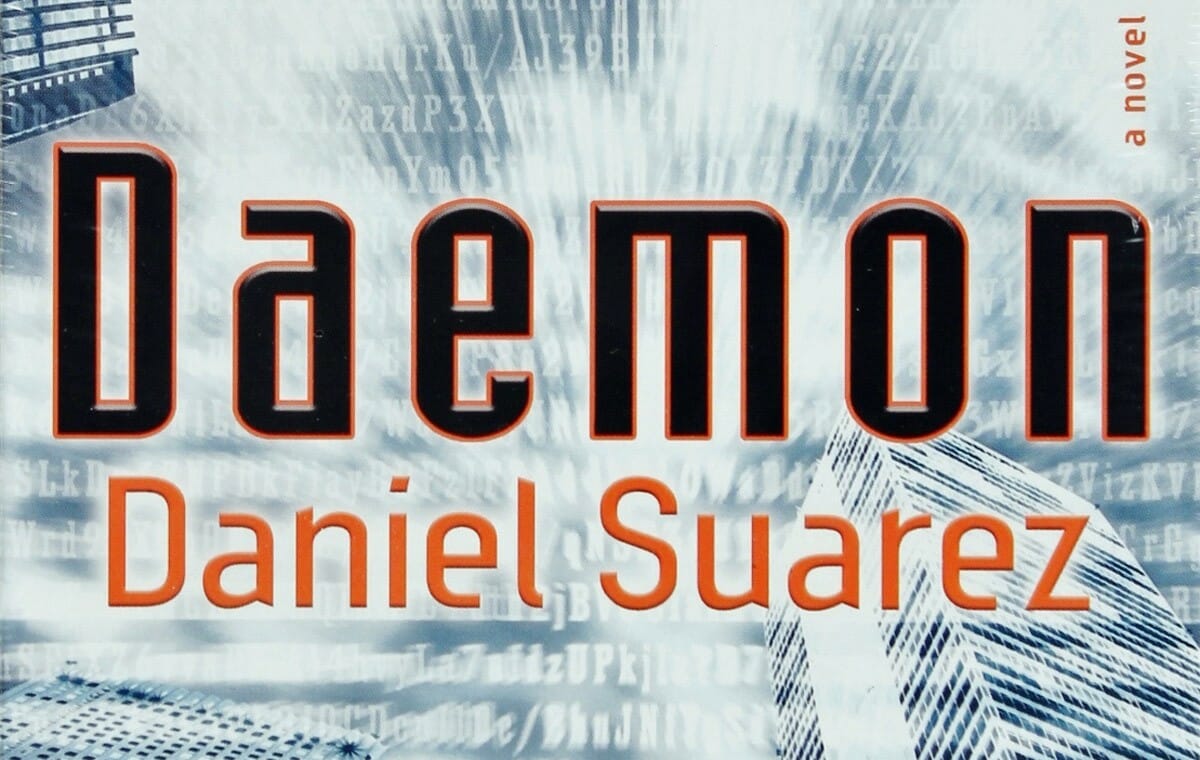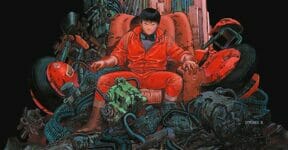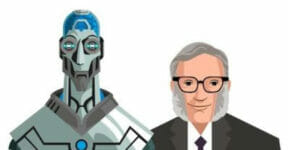Who exactly wrote the novel Daemon and was it written by Daniel Suarez? First things first, there seems to be a need to clear up the confusion regarding the author’s name. Some threads on various online forums say that it is “David” Suarez who writes Daemon. The original 2006 edition of the science fiction thriller features the author’s name on the cover as “Leinad Zeraus,” which apparently is an anagram for Daniel Suarez. In an interview with WIRED back in 2008, the author said the pseudonym served two purposes: it became a tool to keep his venture into the literary world separate from his day job and his real name might come across as being too common to be exciting. Daemon had been initially a self-published novel until it got picked up by Dutton, which then re-released it in 2009.
A Little Background
A former speaker at TEDGlobal, the Long Now Foundation, MIT Media Lab, and an array of well-known Silicon Valley companies, Daniel Suarez is a database consultant when he is not writing his next book. He received his BA in English literature from the University of Delaware and is a lifelong video-game enthusiast.

He finished writing Daemon in 2004 and submitted the book to several publishing agencies. According to the author himself, only three of those agencies read the book; one thought it was too long, whereas the other two said it was overly complex. Suarez and his wife, Michelle, also an IT consultant, decided to start their own publishing firm, Verdugo Press. Sales started slowly but then it grew exponentially when Rick Klau, the former head publisher at Feedburner, received a copy of it. Google’s acquisition of Feedburner and Klau’s subsequent move to the company and his word-of-mouth marketing helped skyrocket the novel’s popularity. As of March 2008, at last, 1200 copies had been sold.
Premise
The story of Daemon by Daniel Suarez starts with the death of Mathew Sobol, a well-known gaming software producer. Sobol was the person behind the creation of CyberStorm, a popular MMORPG (massively multiplayer online role-playing game). During his life, Sobol was a brilliant computer programmer with a dangerous vision of a new world order controlled by software. He had no power to materialize the vision in his lifetime, so he created a software or daemon to execute the plan as soon as he died. It turns out that his death triggered the beginning of a murder spree by software he masterminded.
A daemon is a type of computer program that runs in the background (as opposed to requiring user input) and can be dormant until a particular event activates its intended function. In the case of Sobol, an obituary of his death sets the daemon in motion. The MMORPG is part of the daemon itself, which carries a herd of efficient Trojan horses. It begins killing people, taking over other computers, buying companies, and recruiting real-world agents to commit atrocities on its behalf. Think of it as Skynet from the Terminator movies but at a much smaller yet more plausible scale.
The Ventura County Sheriff’s Department assigns Detective Sergeant Peter Sebeck to investigate the mysterious deaths of two high-profile CyberStorm Entertainment employees, seemingly related to online games. Forensics investigation determines that Sobol might have something to do with recent peculiar cases of electrocutions and decapitations as well. A visit to his mansion reveals the presence of murderous booby traps in addition to an AI-controlled Hummer and a sprinkler system that squirts gasoline instead of water. As the investigation develops, the daemon fights back and frames Detective Sebeck for the crimes.
Cautionary Tale
To say that Daemon is a cautionary tale about AI already sounds like a cliché these days, but it is only a cliché because it is good and, once again, plausible. Unlike the Skynet from Terminator, however, Sobol’s daemon is not actually a self-aware advanced artificial intelligence. The daemon is software designed to do very specific things. It’s just like most computer programs; the biggest difference is that Sobol deliberately created them to be anything but benign.

According to Suarez, the world is pretty much run by dumb machines—bots that are very efficient at certain tasks they’re designed to do but oblivious to everything else. They neither care nor understand if what they do can harm society. People’s tendency to rely too much on computer programs, both for work and entertainment, became one of the author’s main areasons for writing the book. At the end of the day, Daemon only strengthens (or rather reiterates) the argument against the potential threats of AI.
We think Daemon by Daniel Suarez is, to put it mildly, thought-provoking. While a crimes-committed-by-computer premise is not at all impossible, it is difficult to grasp the likelihood of Sobol being able to anticipate every possible human response to his Daemon without even a single glitch. That said, the book works effectively as a persistent reminder for governments, corporations, and general users to slow down their “dependencies” on bots and software in general. The story is not perfect by any means, but more than engaging enough to ensure that the message comes across well.
Other things you might want to know:
Is Daemon part of a series?
Daemon by Daniel Suarez only forms half of the story; the other half is narrated in a sequel titled Freedom. Together, they comprise a two-part novel.
What is “Freedom” all about?
Both Daemon and Freedom give the idea of a group of hackers taking control of the world. The first part focuses on the rise of Sobol’s Daemon, whereas the second book depicts the showdown between the forces of the Darknet and the conventional power of the government.
Does Daemon talk about actual technologies in existence?
Many devices and technologies mentioned in the novel do exist and are used on a daily basis. Among them include voice recognition, MRI brain scan, autonomous vehicles, augmented reality using contact lenses, surveillance bots, prosthetic eyes, and laser weapons, among others.
Check out other articles by month:







